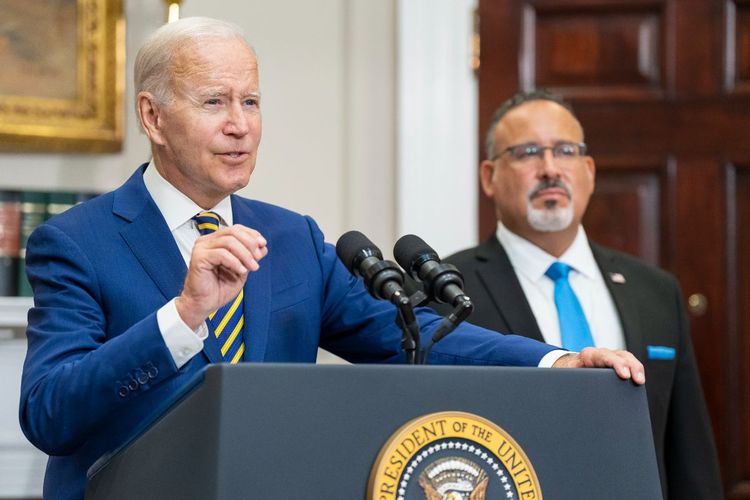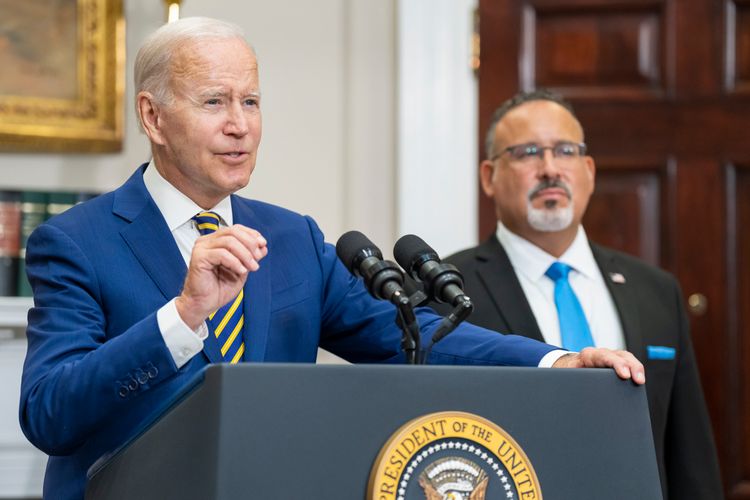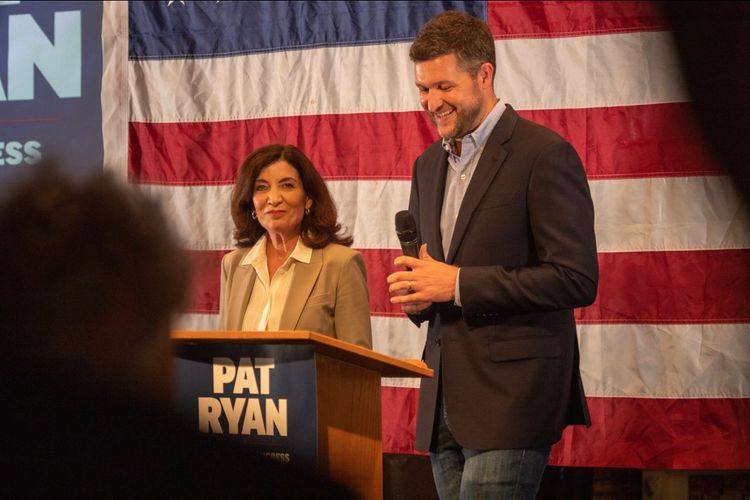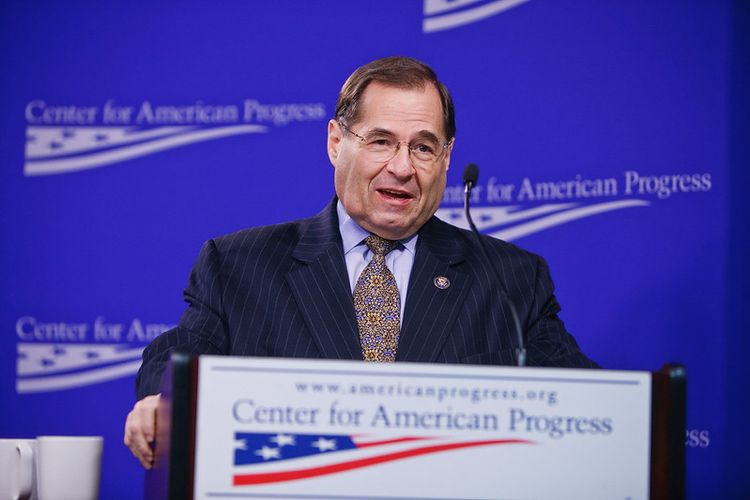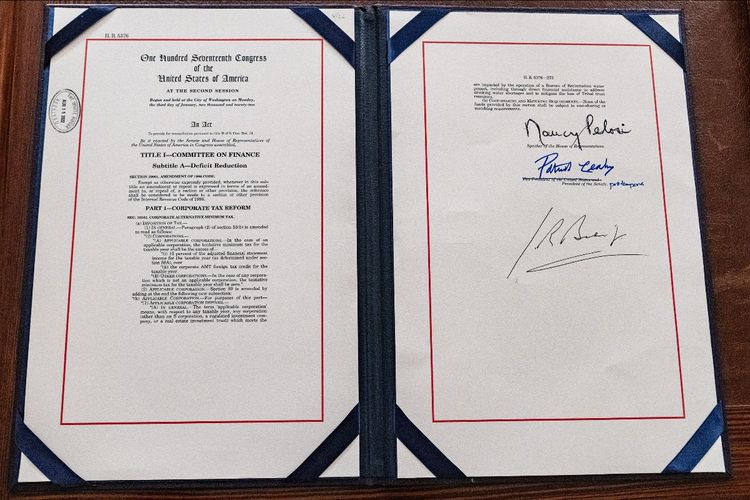Wake Up To Politics - July 28, 2022
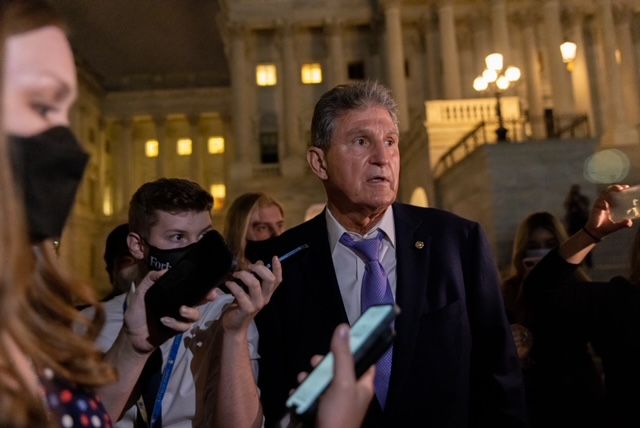
by Gabe Fleisher
Good morning! It’s Thursday, July 28, 2022. Election Day 2022 is 103 days away. Election Day 2024 is 831 days away.
Biden’s agenda rises from the ashes after Manchin reversal
Democratic leaders have spent more than a year seeking to unite their party behind President Biden’s sweeping economic, climate, and health care agenda — or at least something close to it.
It has been a wild roller coaster ride, full of ups and downs: some moments when a deal appeared imminent, and others when one seemed out of the question. Just two weeks ago, Sen. Joe Manchin (D-WV) devastated Democrats when he announced he wouldn’t support any of the proposed climate provisions, shrinking their ambitions significantly.
On Wednesday, the ever-mercurial Manchin reversed himself yet again. Out of nowhere, for the first time in the months of negotiations, he and Senate Majority Leader Chuck Schumer (D-NY) jointly announced they had agreed on a legislative package, which they dubbed the “Inflation Reduction Act of 2022.”
To be clear: the measure is a far cry from the $3.5 trillion package Biden originally proposed, which Democrats had envisioned as a “cradle-to-grave” remaking of the social safety net, implementing everything from two years of free community college and universal pre-K to expanding Medicare, public housing, and the Child Tax Credit.
But the more limited Manchin-Schumer deal is historic in its right. In Schumer’s words, the package “will be the greatest pro-climate legislation that has ever been passed by Congress”: Democrats claim that it will lead the U.S. to a roughly 40% reduction in its planet-warming carbon emissions by 2030.
That is almost all the way to Biden’s pledge of slashing U.S. emissions in half by 2030, a target that seemed definitively out of reach after Manchin’s previous pronouncement earlier this month.
If it is approved, the legislation will also allow the federal government to negotiate some prescription drug prices, a long-sought Democratic goal. The party will seek to pass the package through the filibuster-proof reconciliation process, which allows a bill to pass with only Democratic support in the Senate.

We’ll get to some of the political and economic implications in a moment — but first, let’s unpack what’s actually in the agreement:
As a concession to Manchin, the package will aim to reduce the deficit by around $300 billion, by raising about $739 billion in revenue and spending about $433 billion of it. Here’s the spending side:
- $369 billion in spending on climate, which includes tax credits for consumers to buy solar panels and electric vehicles and to encourage manufacturers to make more clean energy products, as well as funding to address the impact of climate change on disadvantaged communities.
- $64 billion in spending on health care, which will allow for a three-year extension of the expanded Obamacare subsidies Democrats passed in 2021, which have aided roughly 13 million Americans in paying for their health care premiums.
And here’s the revenue side:
- $327 billion raised from tax increases, including a 15% minimum tax rate for corporations and changes to the “carried interest loophole,” which allows investment managers to treat some of their earnings as capital gains rather than income (which is taxed at a higher rate)
- $288 billion in savings from negotiating prescription drug prices. Medicare will be able to negotiate directly with companies on a limited class of high-cost prescription drugs, which will lower prices for consumers — but also for the federal government, since Medicare costs will go down as a result.
- $124 billion from increased IRS enforcement, which is the estimated net savings from giving the agency $80 billion in additional funding to catch tax evaders.
All of these numbers are over a 10-year period and come from estimates from the Joint Committee on Taxation or the Congressional Budget Office. If you’d like to see the full 725-page bill, you can read it here.
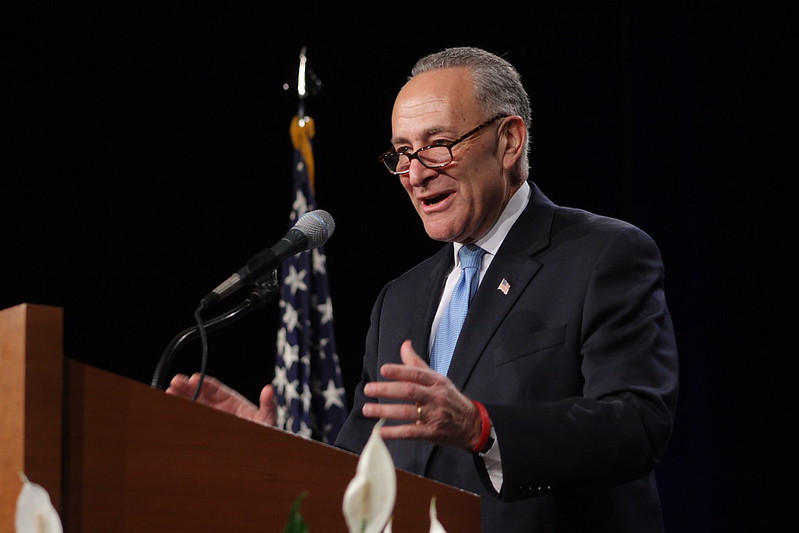
The deal marks a potential turning point for the Biden agenda. The president began Wednesday at home with a mild Covid infection; by the day’s end, he was out of isolation — and some of his top priorities, left for dead two weeks ago, were back on the table.
In a town full of leaks, the Wednesday announcement caught almost everyone by surprise: “Holy shit,” Sen. Tina Smith (D-MN) tweeted. “Stunned, but in a good way.”
Even Senate Majority Whip Dick Durbin (D-IL), Schumer’s top deputy, apparently learned of the deal from reporters. There was no indication of what caused Manchin’s sudden change of heart.
In another boon for Biden — whose approval ratings have been sinking ahead of the midterm elections — the Senate also passed a $280 billion package on Wednesday to boost the American semiconductor chip industry, another of the president’s priorities.
(The chips package may face difficulty in a House today, with significantly fewer Republicans expected to support it amid news of the reconciliation deal. Some commentators speculated that Manchin’s sudden reversal, only hours after the chips package passed the Senate with bipartisan support, was no coincidence.)
Still, no reconciliation deal has been signed into law yet. If there’s one thing this past year of on-again, off-again negotiations should remind you, it’s that things can always change on a dime in politics — and that remains true, as Democrats have several hurdles to overcome before they can call the bill a law.
The deal may have Manchin’s sign-off, but it has yet to receive support from all 50 Senate Democrats, which it will need. In particular, his fellow centrist Sen. Kyrsten Sinema (D-AZ) declined to embrace the package on Wednesday, saying she would need time to review the text. Sinema has opposed changes to the carried interest tax provision in the past.
Democrats also have little margin for error in the House, where some members from high-tax states are peeved that the deal does not include changes to the state and local tax (SALT) deduction that was capped by the Trump-era tax cuts.
And there is always Covid to keep in mind: Durbin, the No. 2 Senate Democrat, tested positive for the virus this morning. Democrats are hoping to vote on the reconciliation deal as soon as next week, which would require 100% attendance — no quarantines — from their side of the aisle.

The tax-and-spending package also comes at a precarious time for the American economy:
GDP falls for second quarter, raising recession fears
The Commerce Department reported this morning that the U.S. gross domestic product shrank by 0.9% from April to June, the second consecutive quarter of GDP decline.
Economists have long informally defined a recession as two straight quarters of contracting GDP, although technically recessions are declared by the National Bureau of Economic Research using a wider range of factors. (However, there has only been one period of two-quarter negative GDP that NBER did not declare a recession, in 1947.)
The Biden administration has pushed back on claims that today’s GDP report means the economy has entered a recession, pointing to the historically low unemployment rate. Republican lawmakers have called those efforts “Orwellian,” noting that the two-quarter definition has long been used by economists of all ideological stripes.
Meanwhile, inflation has continued to soar, with Federal Reserve Chair Jerome Powell announcing another massive interest rate hike on Wednesday in a bid to lower consumer demand (and the price increases that come with it).
Notably, Powell still told reporters that he thinks “too many areas of the economy” are performing well for it to be considered a recession.
Republicans argue that the new reconciliation package will only exacerbate inflation, just as economists widely agree that the Democrats’ 2021 spending bill did. “The same people who spent us into inflation want to tax us all the way into recession,” Senate Minority Leader Mitch McConnell (R-KY) said earlier this week.
Democrats retort that the Manchin-Schumer bill will lower health care and drug costs for Americans amid the inflationary surge.
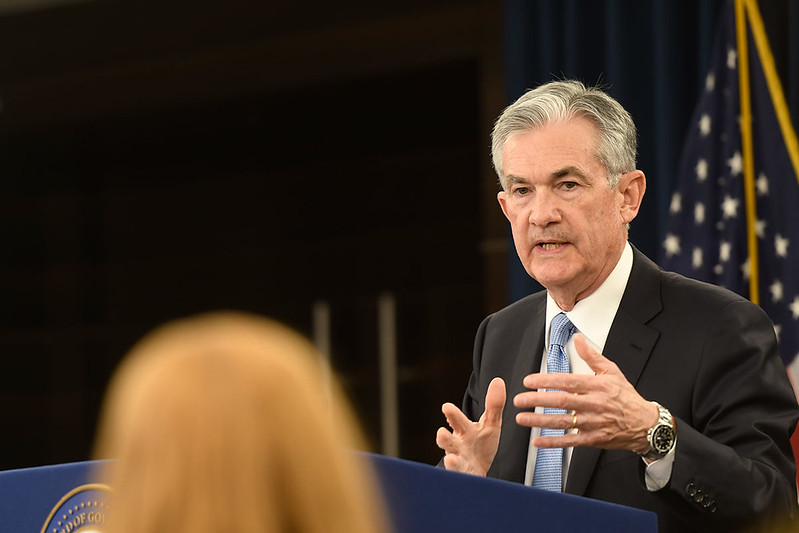
More news you should know
— “Former White House aide Cassidy Hutchinson cooperating with DOJ's Jan. 6 probe, say sources” (ABC News)
— “Former Republicans and Democrats to form new third U.S. political party” (Reuters)
— “US. offers deal to Russia to free Brittney Griner as she testifies in Moscow” (Washington Post)
— “CNN Poll: 75% of Democratic voters want someone other than Biden in 2024” (CNN)
— “CDC set to make monkeypox a nationally notifiable condition” (Politico)
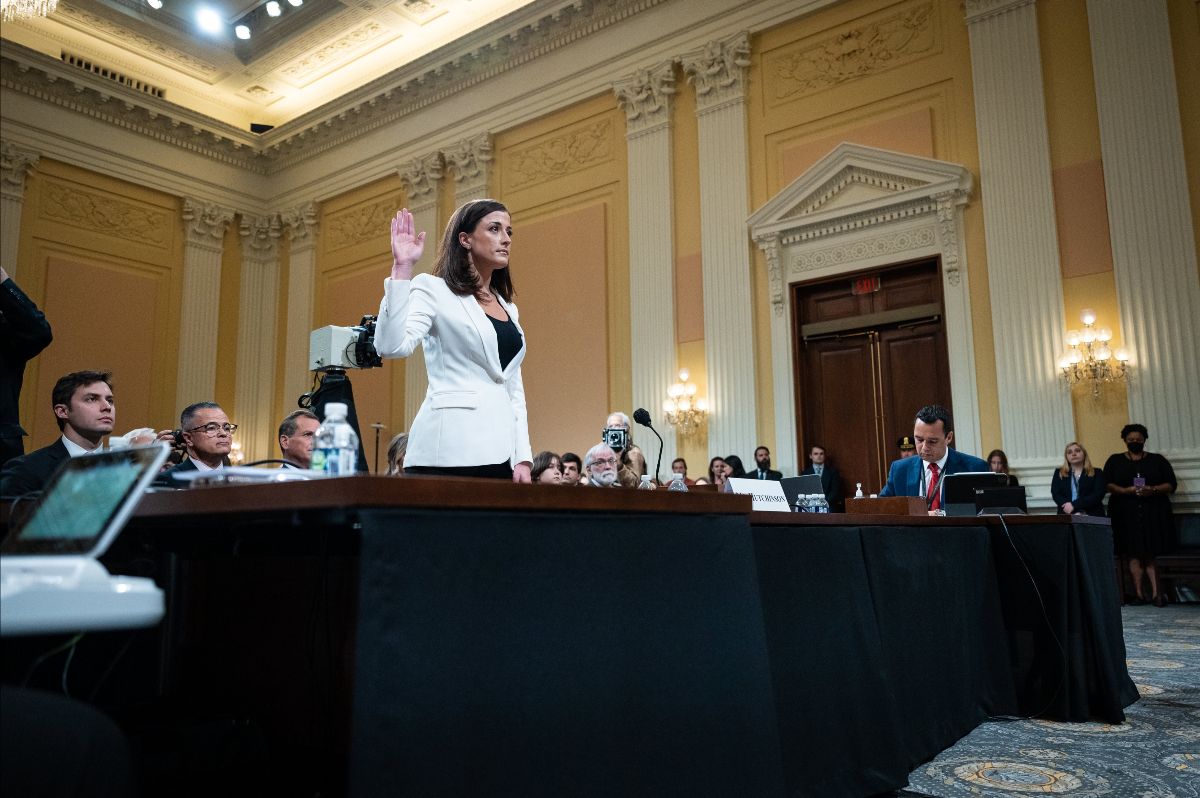
What’s going on in Washington today
All times Eastern. Click on an event’s time to watch it.
President Biden will receive his daily intelligence briefing (9:30 am). Later, he’ll deliver remarks on the Democratic reconciliation package (12 pm) and deliver remarks on the economy after meeting with a group of CEOs (2:15 pm).
Vice President Harris will travel to New York to tour the Bedford Stuyvesant Restoration Corporation Economic Solutions Center (1:30 pm) and deliver remarks on the Biden administration’s investments in underserved communities (3:25 pm). Later, she’ll headline a fundraiser (6:50 pm) before returning to Washington.
White House press secretary Karine Jean-Pierre will hold her daily press briefing (3:15 pm).
The Senate will convene (10 am) and vote to confirm Constance Milstein to be the U.S. ambassador to Malta.
The House will convene (10 am) and vote on the CHIPS and Science Act, the $280 million package that includes subsidies and tax breaks to boost U.S. manufacturing of semiconductor chips, as well as funding for new scientific research. The measure passed the Senate in a 64-33 vote on Wednesday.
Later, the House will vote on the Big Cat Public Safety Act, which would prohibit ownership of big cats (such as lions, tigers, leopards, and jaguars) — with exceptions for licensed zoos, wildlife sanctuaries, veterinarians, and universities. The measure has been championed by Carole Baskin, of Netflix’s “Tiger King” fame.
Congressional committees will hold hearings on “innovative approaches to fixing Congress” (9 am), “ending sexual harassment at the Department of Veterans Affairs (10 am), “preventing polluters from getting government contracts” (10 am), “the independent state legislature theory and its potential to disrupt our democracy” (12 pm), and “how leaded aviation fuel is poisoning America’s children” (2 pm).
The Supreme Court is out until October.
Before I go...
Here’s some good news: A man in California who has lived with HIV since 1988 appears to have been cured of the virus, scientists said Wednesday.
That makes him the latest success story for a risky bone marrow transplant that seems to have cured four other HIV cases so far. The transplant is only able to be used on people with other potentially fatal conditions — he has leukemia — but its success could help researchers find a similar, but less risky, cure that could be more broadly applied.
The California man (who does not want to be identified) is the oldest HIV patient for whom the transplant has worked, and the one who has been infected with the virus for the longest. “I never thought I would live to see the day that I no longer have HIV,” he said in a statement.
Researchers also announced Wednesday that an HIV patient in Spain is believed to be in a state of remission as a result of a different treatment — another possible fuel for an eventual cure.
An estimated 40 million people worldwide are living with HIV.
Read more from NBC News.
That’s it for today. If you enjoy Wake Up To Politics, it’s always appreciated if you donate to support the newsletter or buy some merch. Or if you tell your friends and family to sign up at wakeuptopolitics.com.
If you have any questions or feedback, feel free to email me: my inbox is always open.
Thanks for waking up to politics! Have a great day.
— Gabe

